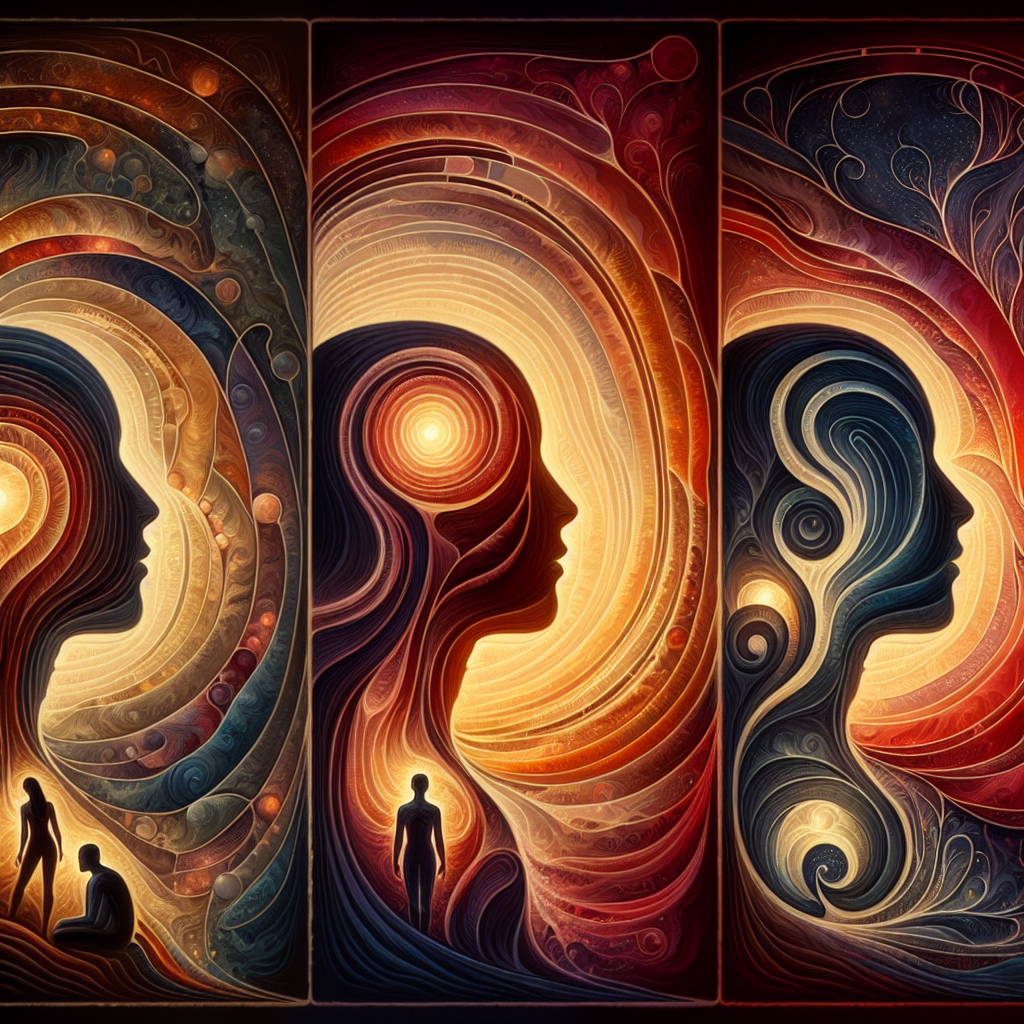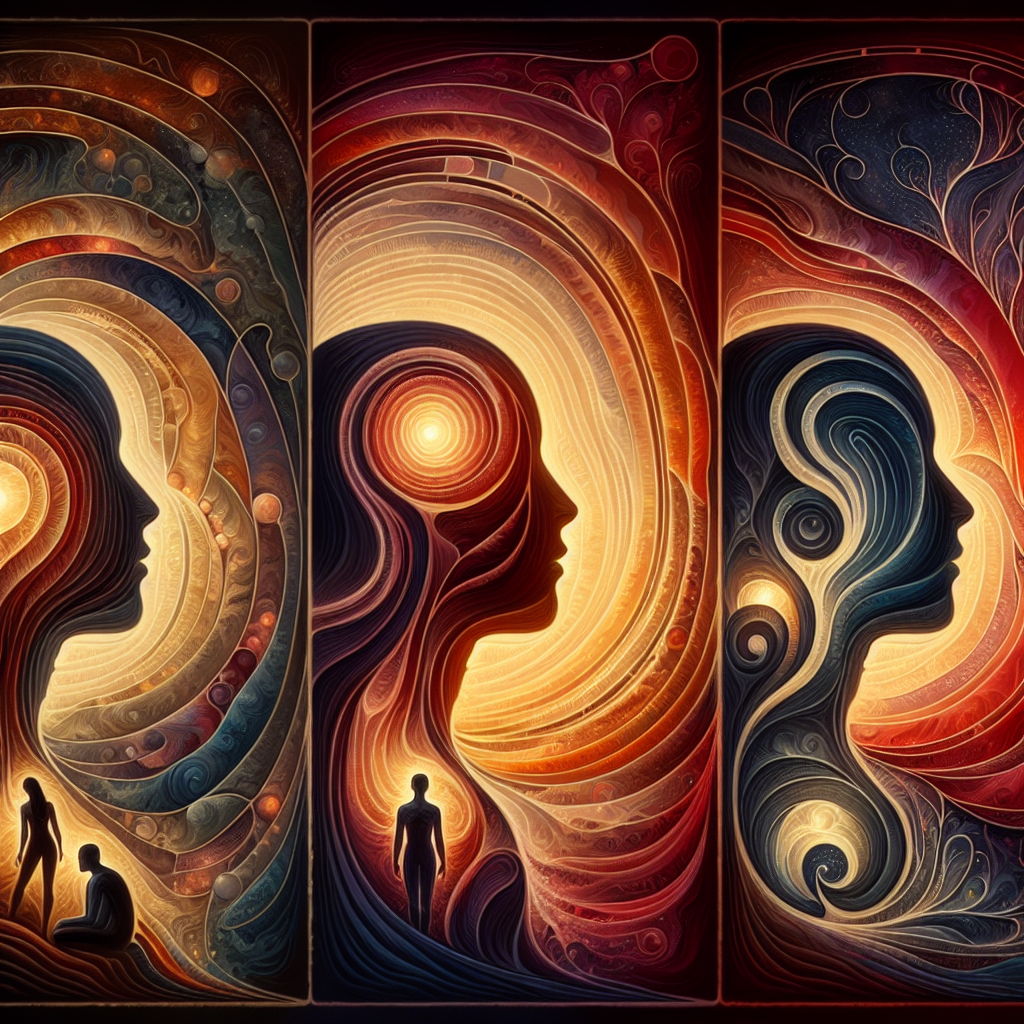Have you ever wondered if it’s true that you have three loves in your life? You know, the saying that claims you experience three different types of love throughout your journey? Well, let’s take a closer look and explore this theory together. From the initial infatuation to the deep, soul-stirring connection, we’ll unravel the mysteries of these three distinct loves that may have shaped your heart and soul. So, sit back, relax, and let’s dive into this fascinating exploration of love.

Understanding the Concept of 3 Loves in Your Life
Defining the Concept
The concept of having three loves in your life refers to the idea that individuals experience different types of love throughout their lifetime. These three loves are often categorized as passionate love, companionate love, and unconditional love. Each type of love is unique in its characteristics, factors influencing it, and the impact it has on relationships.
Exploring the Origins
The origins of the concept of three loves can be traced back to various ancient philosophical and religious traditions. In Greek philosophy, the three loves were represented by eros (passionate love), philia (companionate love), and agape (unconditional love). These different loves were considered essential for a fulfilling life and healthy relationships.
Is there Scientific Evidence?
While the concept of three loves may not be grounded in scientific research, it resonates with many people’s experiences of love. Scientific studies have explored different types of love and their effects on individuals and relationships. However, it is important to note that love is a complex emotion that cannot be completely understood through empirical evidence alone.
Scepticism and Criticism
As with any concept, there are skeptics and critics who question the validity and applicability of the idea of having three loves in one’s life. Some argue that love is a fluid and evolving emotion that cannot be easily categorized into fixed types. Others believe that the number of loves one experiences is subjective and can vary from person to person.
The Three Loves: Passionate Love
Characteristics of Passionate Love
Passionate love is often described as an intense and overwhelming feeling of attraction towards another person. It is characterized by strong emotions, infatuation, and intense physical desire. During the phase of passionate love, individuals may experience heightened arousal, obsession, and a focus on the physical aspects of the relationship.
Factors Influencing Passionate Love
Passionate love can be influenced by various factors, including physical attraction, shared interests, and chemistry between individuals. The intensity of passionate love can also be influenced by external factors such as societal norms, cultural expectations, and personal beliefs about love and romance.
The Duration of Passionate Love
Passionate love is known to be intense but often has a limited duration. A phase of passionate love typically lasts for a relatively short period, ranging from a few months to a couple of years. As the initial excitement and infatuation fade, passionate love may evolve into a different type of love or shift towards companionate love.
The Three Loves: Companionate Love
Characteristics of Companionate Love
Companionate love is often associated with feelings of warmth, trust, and deep friendship. Unlike passionate love, companionate love is less focused on physical attraction and more centered around emotional intimacy and shared experiences. It is characterized by a sense of mutual respect, support, and a strong emotional bond between partners.
Factors Influencing Companionate Love
Companionate love is influenced by factors such as shared values, effective communication, and the ability to navigate challenges together. Trust, commitment, and shared goals play a significant role in the development and maintenance of companionate love. Over time, companionate love can deepen and become a strong foundation for long-lasting relationships.
The Importance of Companionate Love in Relationships
Companionate love is vital for the long-term success and sustainability of relationships. It provides emotional stability, a sense of security, and a deep connection between partners. While the initial spark of passionate love may fade, companionate love can help couples weather storms, support each other through difficult times, and maintain a strong bond that withstands the test of time.
The Three Loves: Unconditional Love
Characteristics of Unconditional Love
Unconditional love is often described as a selfless, all-encompassing, and unwavering love. It goes beyond romantic relationships and extends to familial love, friendships, and even love for oneself. Unconditional love is characterized by acceptance, forgiveness, and a deep understanding of the flaws and imperfections of oneself and others.
Manifestations of Unconditional Love
Unconditional love is expressed through acts of kindness, compassion, and empathy. It involves supporting and accepting others for who they are, without judgment or expectations. Unconditional love fosters a sense of belonging, safety, and emotional well-being in relationships.
The Impact of Unconditional Love on Relationships
Unconditional love plays a crucial role in nurturing healthy relationships. It creates an environment where individuals feel safe to express themselves, make mistakes, and grow. Unconditional love helps foster emotional intimacy, trust, and a sense of mutual support and understanding between partners.

How the Concept of Three Loves Influences Relationships
Recognizing and Cultivating Different Types of Love
Understanding the concept of three loves can help individuals recognize and appreciate the various types of love they experience in their relationships. By acknowledging and nurturing each type of love – passionate, companionate, and unconditional – individuals can deepen their connection with their partners and create a more fulfilling and balanced relationship.
Navigating Transitions between Loves
Throughout life, individuals may experience transitions between different types of love. Recognizing these transitions and understanding their dynamics can help individuals navigate the changes in their relationships effectively. For example, transitioning from passionate love to companionate love requires adapting to a more stable and emotionally intimate phase.
Overcoming Challenges in Each Type of Love
Each type of love comes with its own set of challenges. Passionate love may bring intense emotions and the risk of heartbreak. Companionate love requires continuous effort to maintain emotional intimacy and prevent the relationship from becoming stagnant. Unconditional love, while deeply fulfilling, can also involve setting healthy boundaries and self-care to avoid becoming emotionally drained.
The Role of Self-Love in the Three Loves
Understanding the Importance of Self-Love
Self-love is a fundamental aspect of one’s ability to experience and express love in relationships. It involves accepting oneself, prioritizing one’s well-being, and fostering a positive relationship with oneself. Without self-love, it can be challenging to fully engage in the different types of love and create healthy and fulfilling relationships.
Self-Love and Passionate Love
Having a strong foundation of self-love can enhance passionate love by allowing individuals to fully embrace their emotions, express their desires, and engage in the relationship authentically. Self-love helps individuals maintain their sense of self-esteem and self-worth, even if the passionate love phase eventually fades.
Self-Love and Companionate Love
Self-love plays a vital role in companionate love by allowing individuals to engage in relationships from a place of emotional well-being and self-assurance. With self-love, individuals can offer unconditional support, empathy, and understanding to their partners, fostering a healthy and harmonious companionate love.
Self-Love and Unconditional Love
Unconditional love begins with self-love. It involves accepting and loving oneself unconditionally, which then extends to accepting and loving others in relationships unconditionally. Self-love helps individuals set boundaries, prioritize their needs, and cultivate a healthy balance between giving and receiving love.

Critiques and Alternative Perspectives on the Concept
One Love or Many?
Critics of the concept of three loves argue that love is not easily categorized into fixed types and that different types of love can coexist simultaneously. They believe that individuals can experience multiple types of love with different people or even within the same relationship. This perspective highlights the complexity and fluidity of love.
Cultural Variations and Perspectives on Love
The concept of three loves may vary across different cultures and societies. Cultural norms, values, and beliefs significantly influence individuals’ understanding and experience of love. Therefore, it is essential to consider cultural variations and perspectives when exploring the concept and its implications for relationships.
The Role of Personal Experiences
Personal experiences shape individuals’ beliefs and understanding of love. Some may resonate with the idea of having three loves in their lives based on their own experiences, while others may have different perspectives based on their unique journey. It is crucial to acknowledge and respect diverse perspectives and the influence of personal experiences on individuals’ understanding of love.
Navigating the Complexity of Love in Modern Times
The Impact of Technology on Love
In the modern era, technology has revolutionized the way individuals connect and experience love. From online dating to long-distance relationships, technology has expanded the possibilities of love while also introducing new challenges. Navigating the complexity of love in the digital age requires adapting to the changing dynamics and utilizing technology to enhance, rather than hinder, our relationships.
Changing Relationship Dynamics
Relationship dynamics have evolved over time, influenced by societal changes and shifting gender roles. Traditional notions of love and relationships are being redefined, giving rise to a more inclusive and diverse understanding of love. Navigating these changing dynamics requires open communication, mutual respect, and a willingness to adapt to new relationship models.
Relevance and Application of the Concept Today
While the concept of three loves may have its origins in ancient traditions, it remains relevant and applicable in modern times. Understanding and embracing the different types of love can help individuals navigate the complexities of relationships, foster emotional well-being, and promote healthy bonds with others. The concept serves as a framework for exploring and understanding love in all its facets.

Finding Your Own Definition of Love and Happiness
Exploring Individual Perspectives on Love
Finding your own definition of love involves exploring your values, beliefs, and personal experiences. Reflecting on what love means to you and how you have experienced it can help shape your understanding and expectations of love. Each individual’s perspective on love is unique, and self-discovery plays a crucial role in finding your own definition.
Balancing Personal Happiness with Love for Others
Balancing personal happiness with love for others is a delicate yet essential aspect of relationships. It involves prioritizing self-care, setting boundaries, and ensuring that your needs are being met while still nurturing and supporting the people you love. Striking this balance involves open communication, empathy, and mutual understanding.
Striving for Fulfillment in Relationships
Striving for fulfillment in relationships requires ongoing effort and commitment. It involves continuously nurturing and investing in the different types of love, fostering emotional intimacy, and actively working through challenges. By striving for fulfillment, individuals can create relationships that bring joy, growth, and a sense of purpose.
Conclusion
Final Thoughts
The concept of having three loves in your life provides a framework for understanding the complexity and diversity of love as experienced by individuals. Whether it is passionate love, companionate love, or unconditional love, each type brings its own characteristics, factors, and impact on relationships. Navigating and embracing these different types of love, while also cultivating self-love, promotes healthy and fulfilling relationships.
Continued Debate and Exploration of Love
While the concept of three loves offers valuable insights into the nature of love, it is essential to remember that love is a deeply personal and subjective experience. As individuals continue to explore and understand love in their own unique ways, the debate and exploration around the concept will inevitably continue. Ultimately, love remains a profound and transformative force that shapes our lives and relationships.


